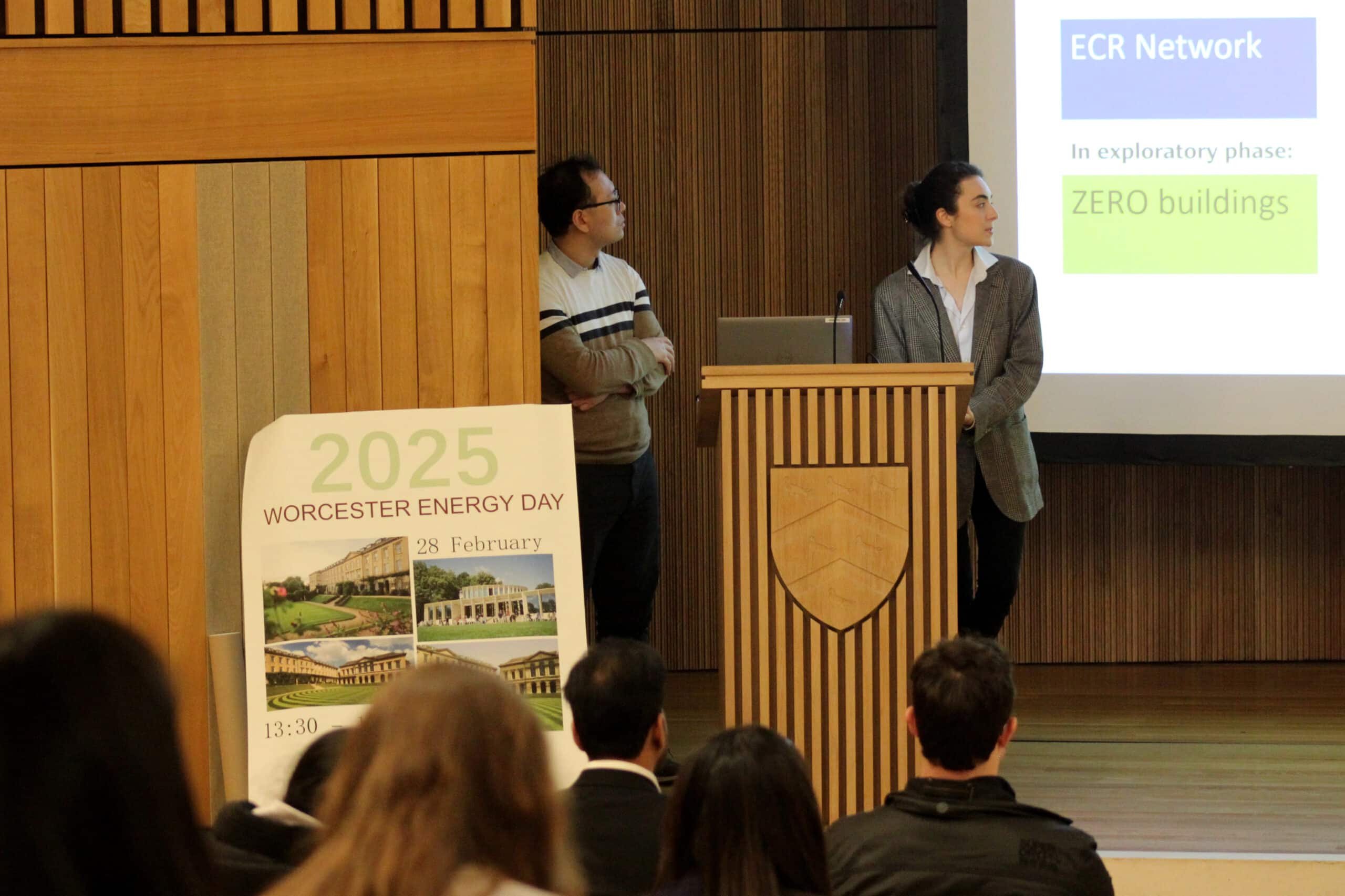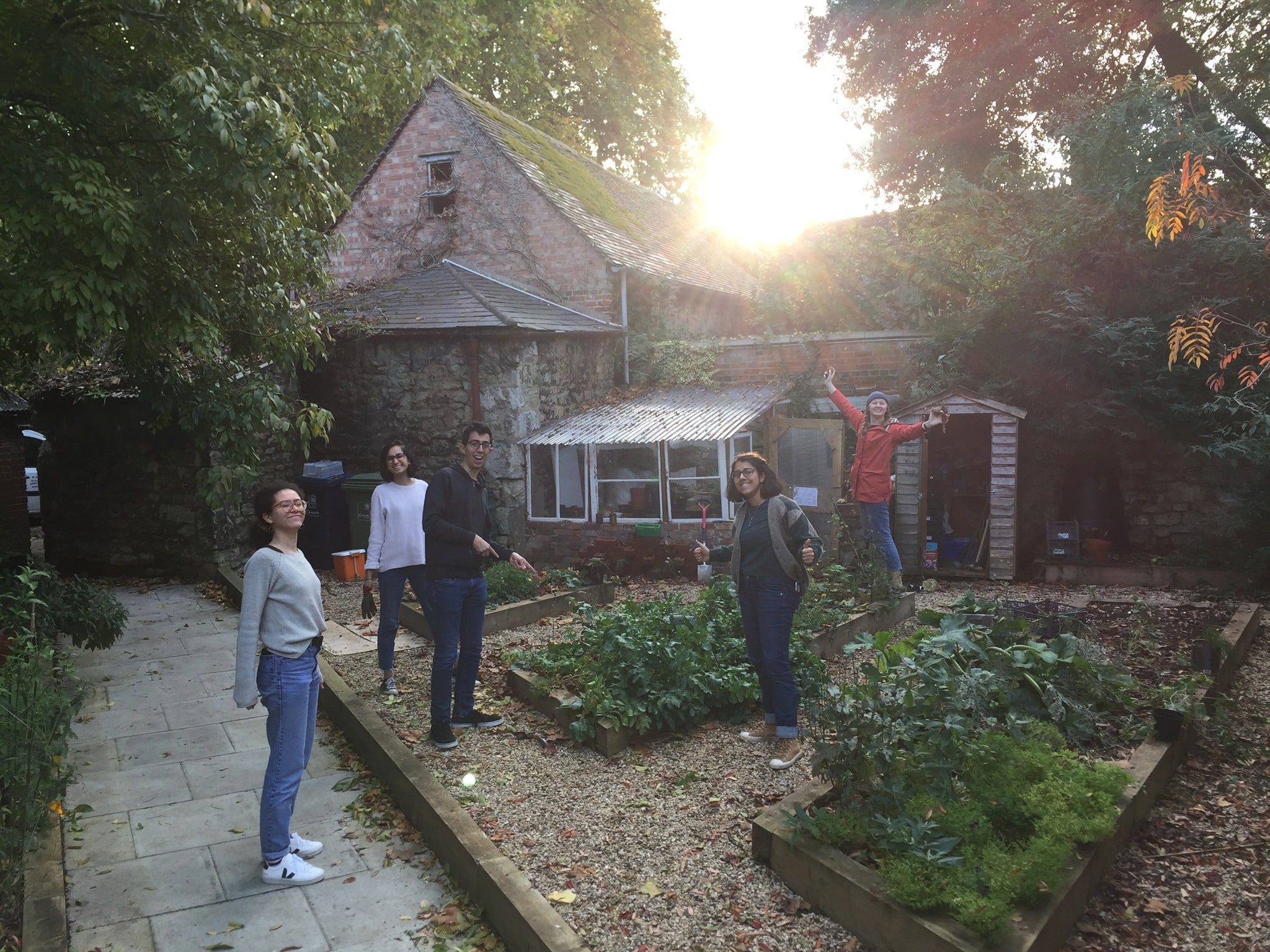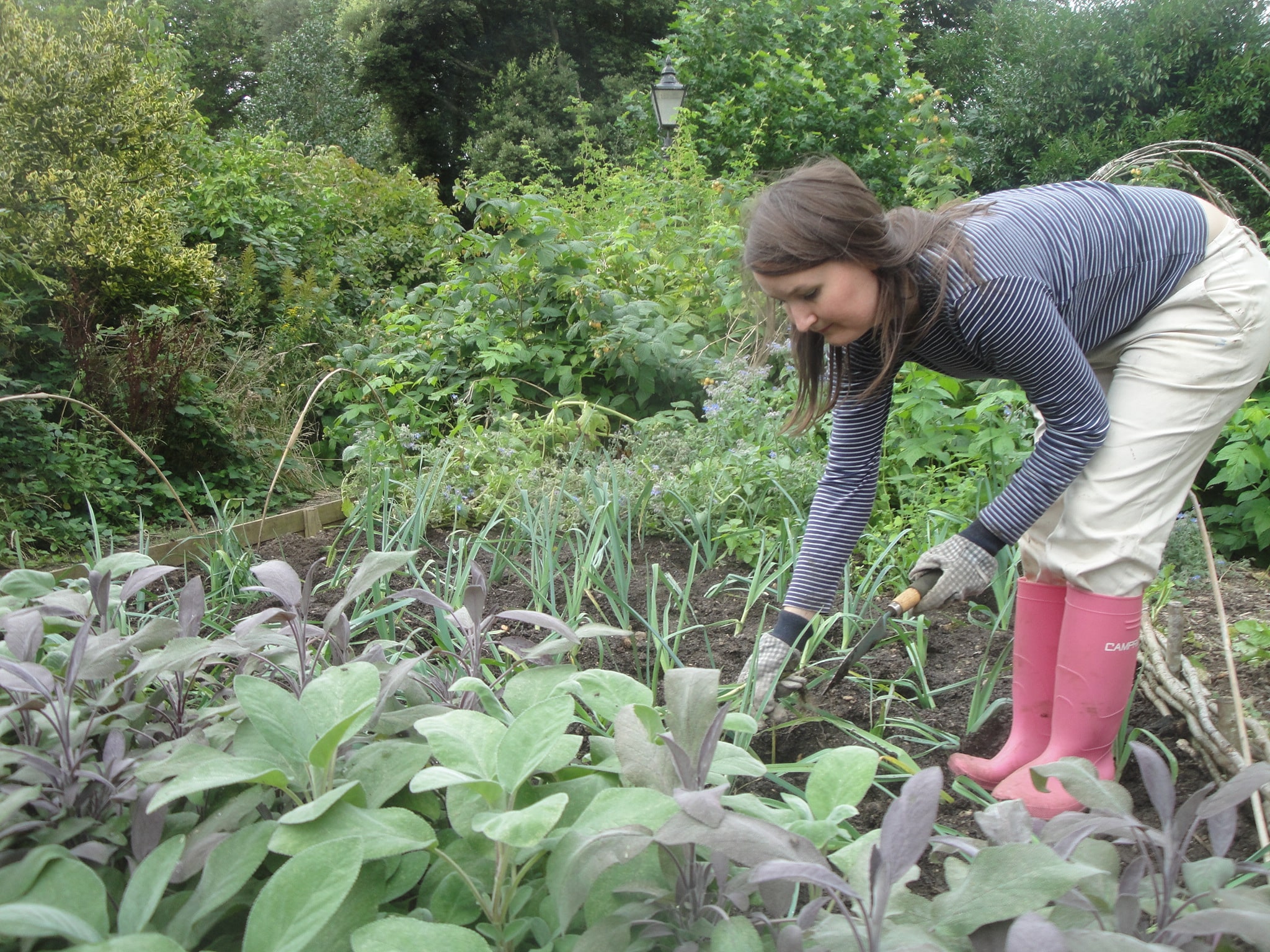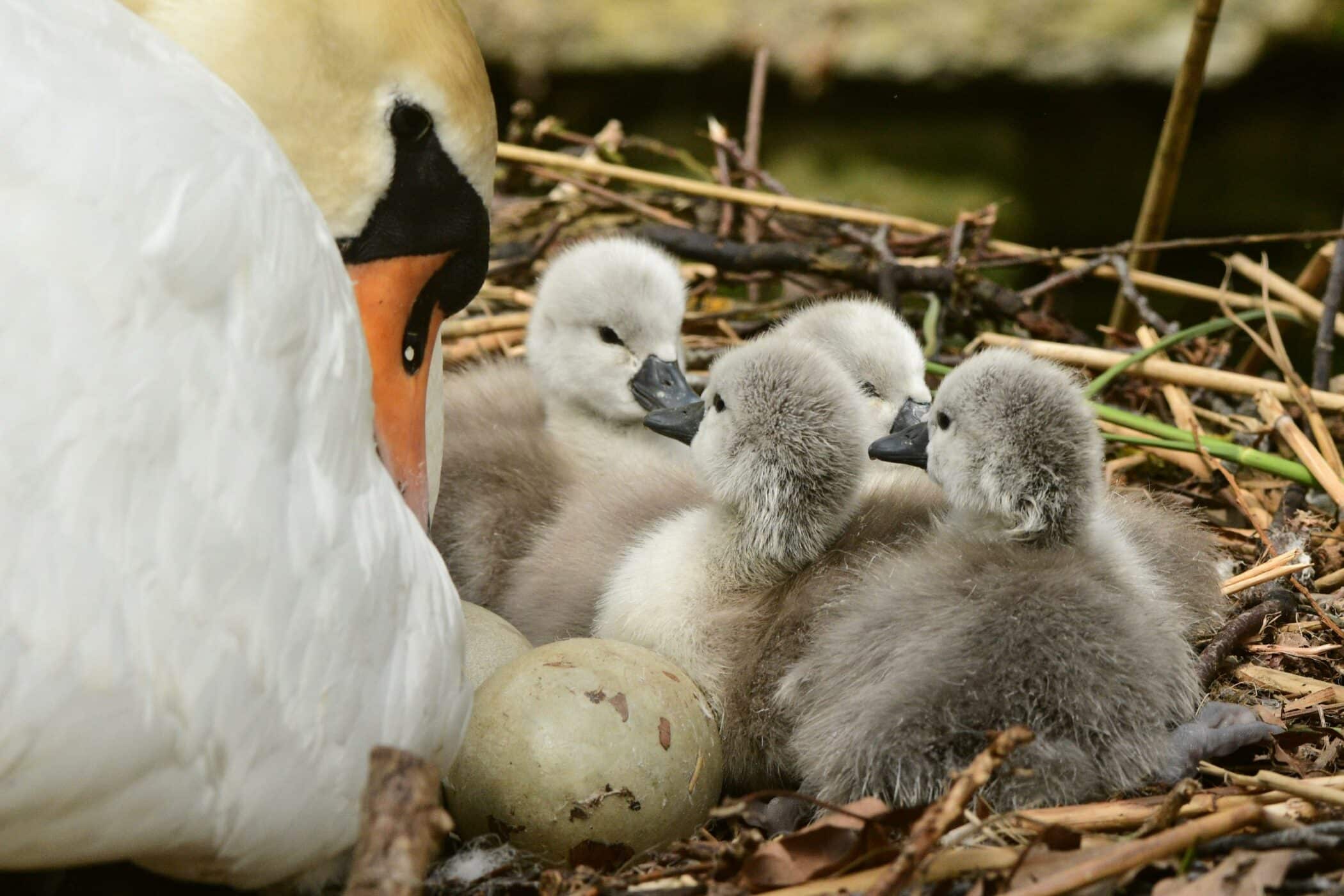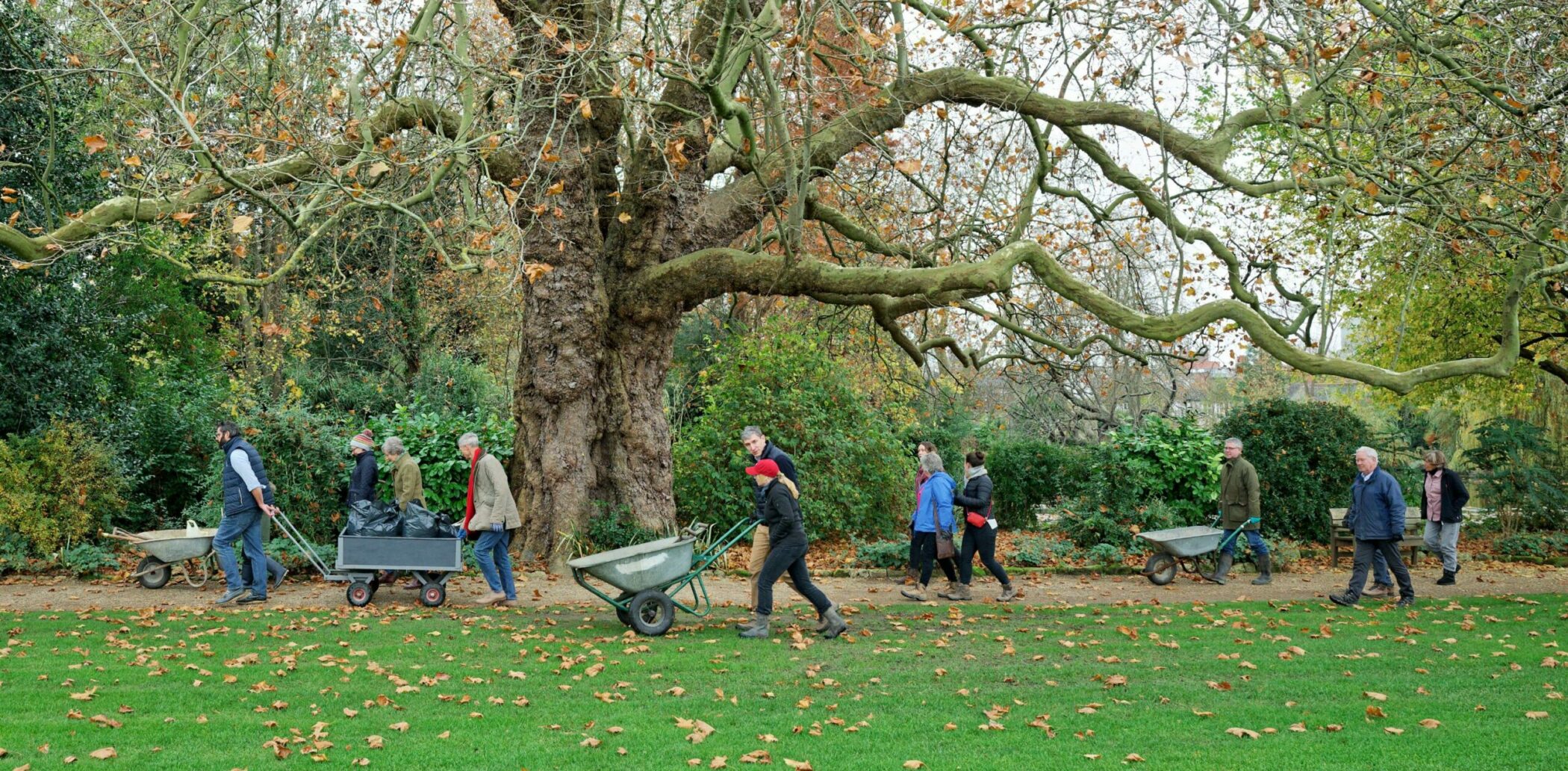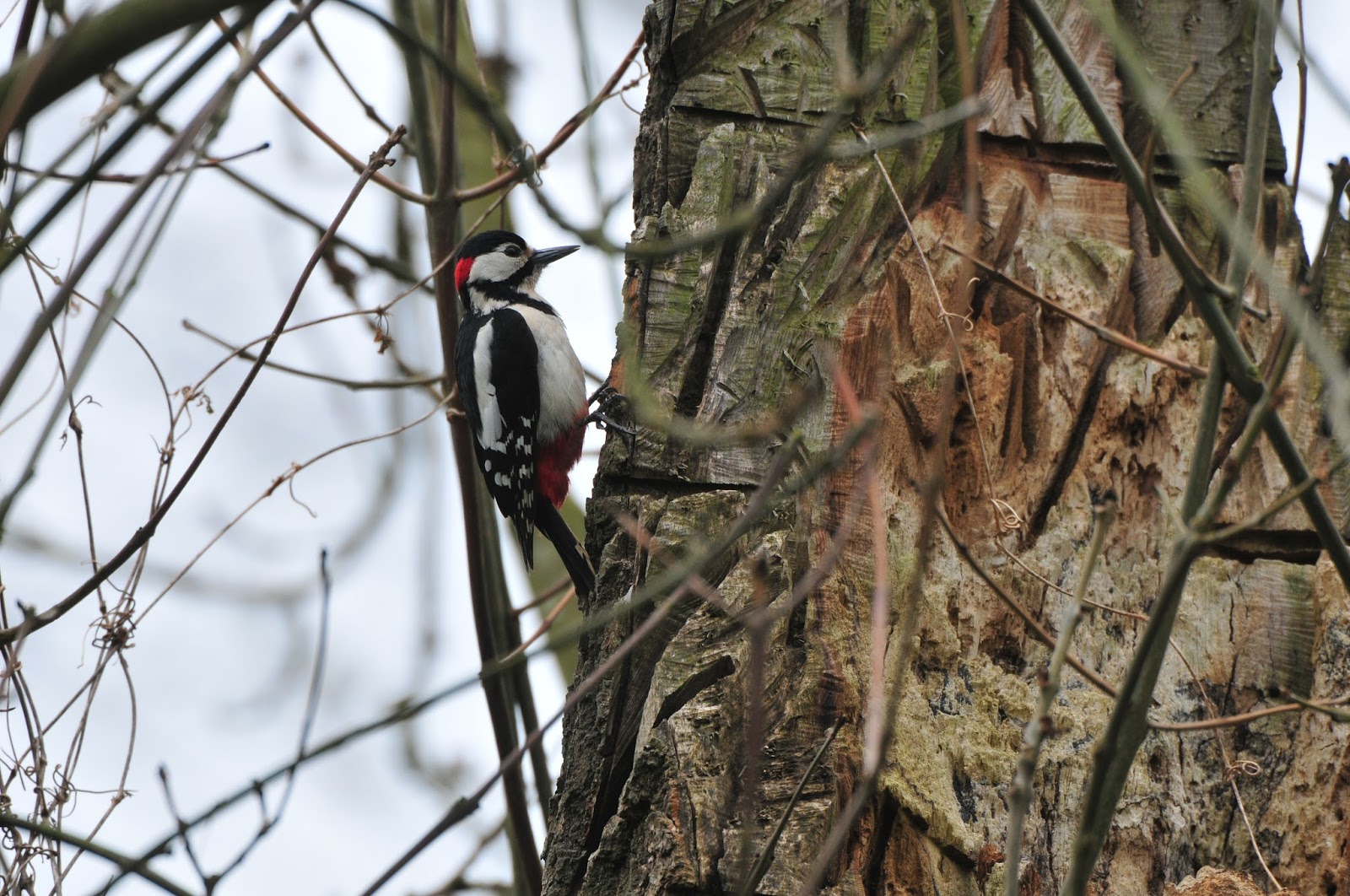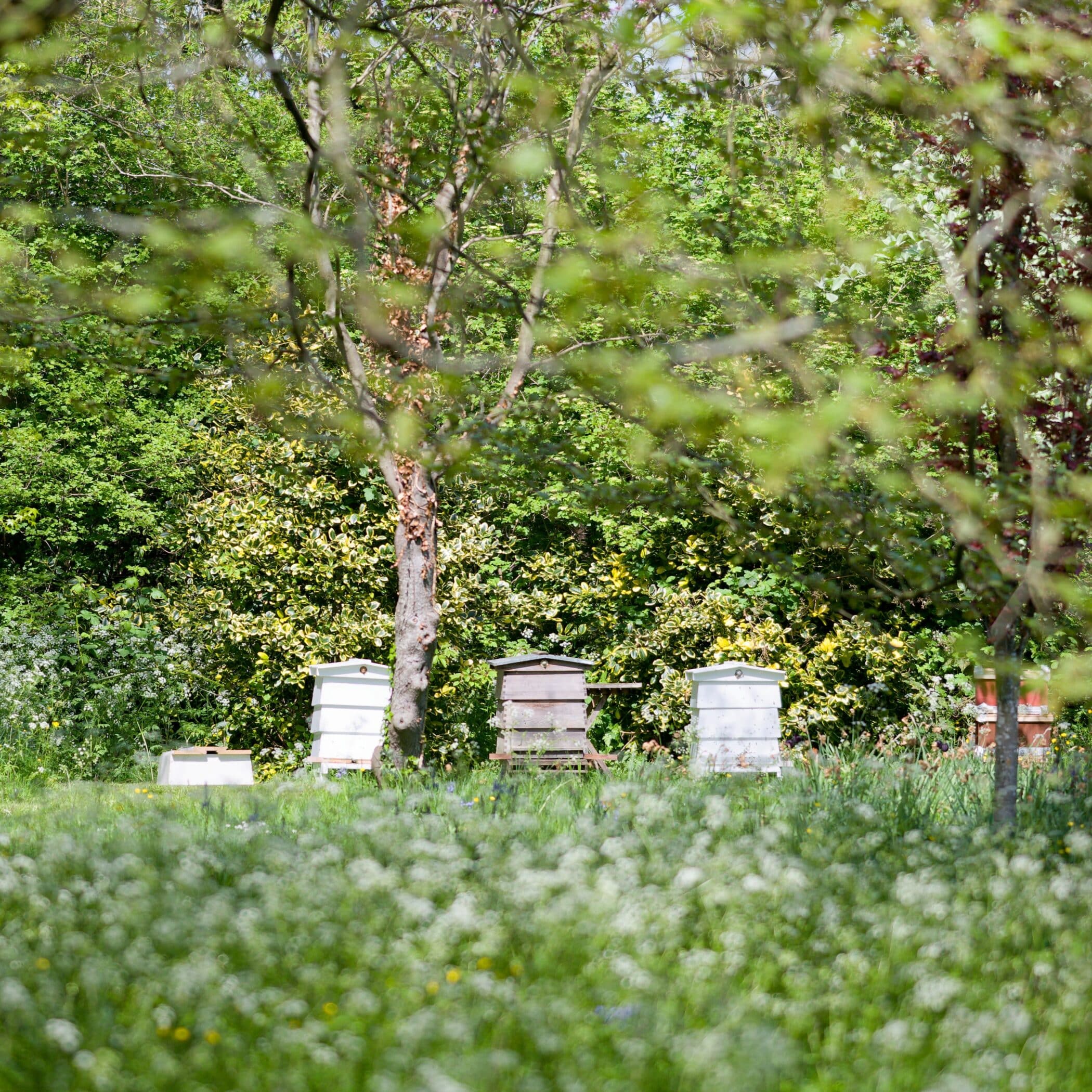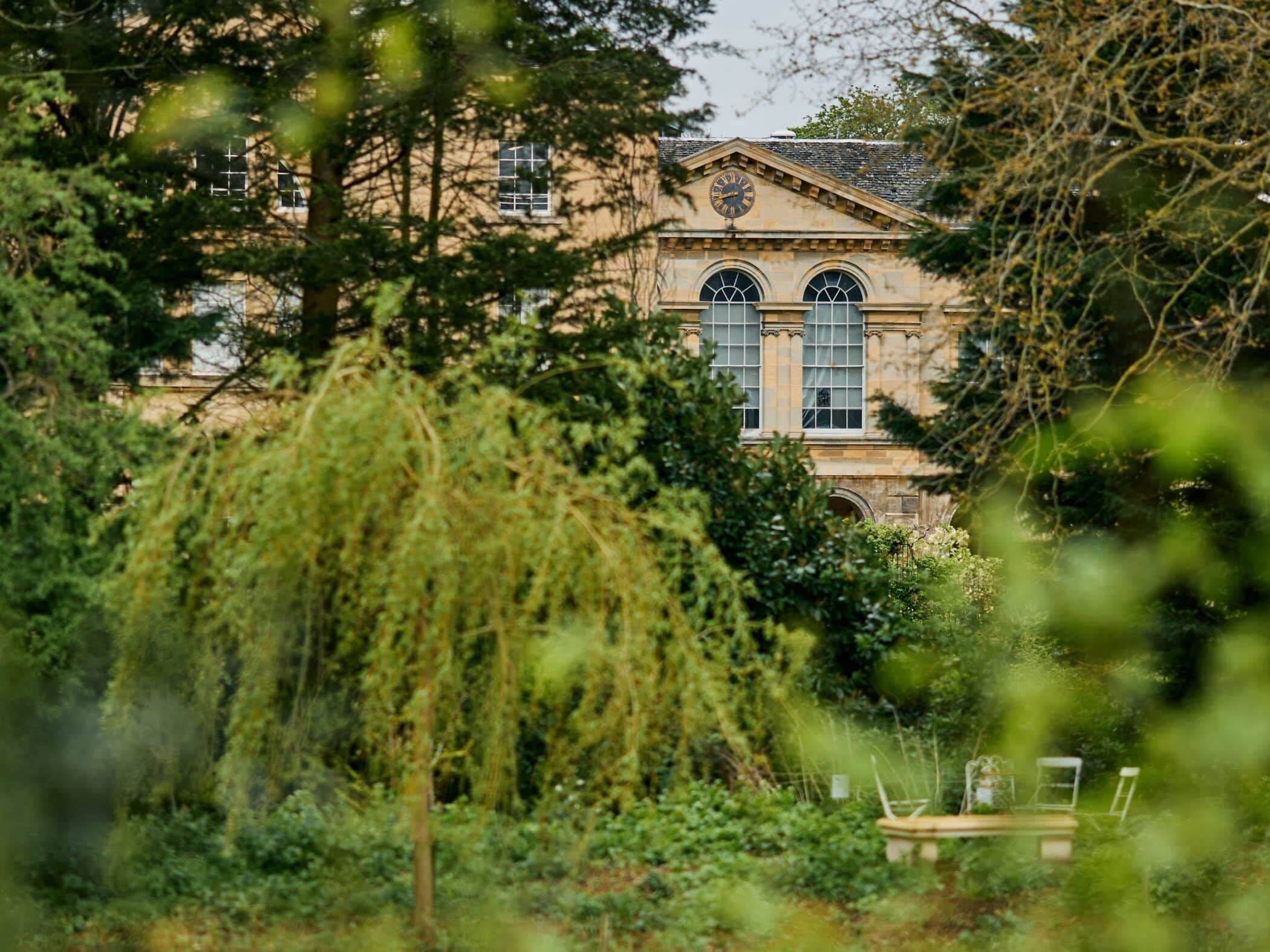Environmental sustainability represents a global challenge. We recognise that an unstable climate, increasing carbon emissions and accelerating biodiversity loss require urgent action at all levels of society.
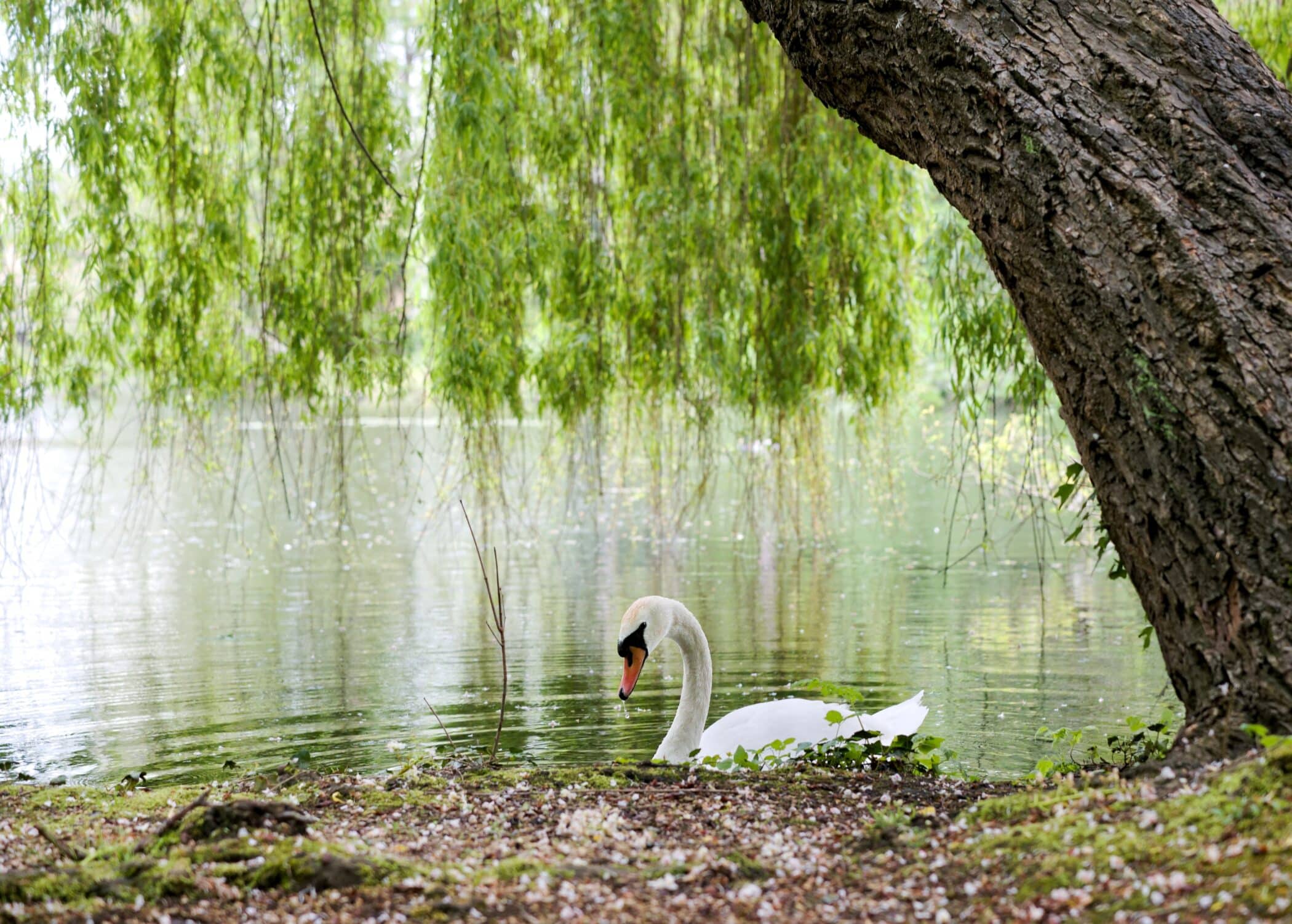
At Worcester College, we’re dedicated to acting in ethical and sustainable ways to improve our environmental performance, reduce our emissions and manage our natural estate. Sustainability is at the heart of what we do, and what we stand for. That’s why we’re taking concrete action to embed sustainability at every level of our operations and ways of working. We’re committed to being a carbon net-zero college while investing in and enhancing the rich biodiversity of our gardens and grounds.
Since 2011 we’ve had an Environmental Policy in place; in 2023 we renewed and revised our commitments to form our Environmental Sustainability Policy. We’ve set ourselves clear targets, and have put systems in place to monitor the effectiveness of our policies and the impact of our actions.
We have a dedicated Sustainability Committee, chaired by the Sustainability Fellow, which regularly reviews our strategy, targets, and policies. Sustainability is also a standing agenda item for all College committees, helping to embed awareness of environmental impact in all decision-making.
Our environmental sustainability policy Email the Sustainability Fellow
Latest green news
Events
See all events

sustainabILITY initiatives
Our students a proud to take a lead in promoting sustainable behaviour at Worcester, both through their representation on the Sustainability Committee and through the actions and initiatives promoted by the JCR and MCR. Take the student-led Edible Garden project which has been running since 2010, creating a shared space for students to grow edible plants and learn new skills.
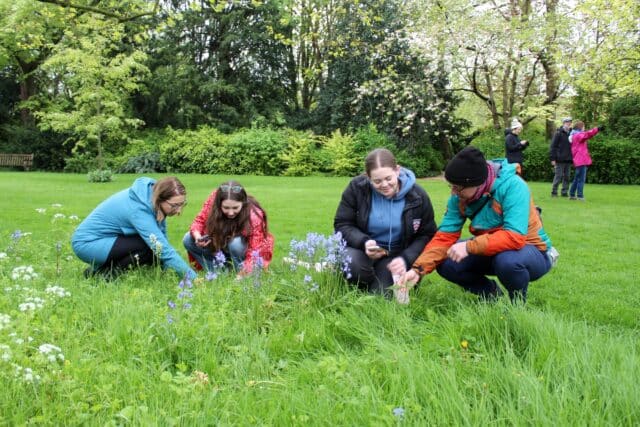
Biodiversity monitoring
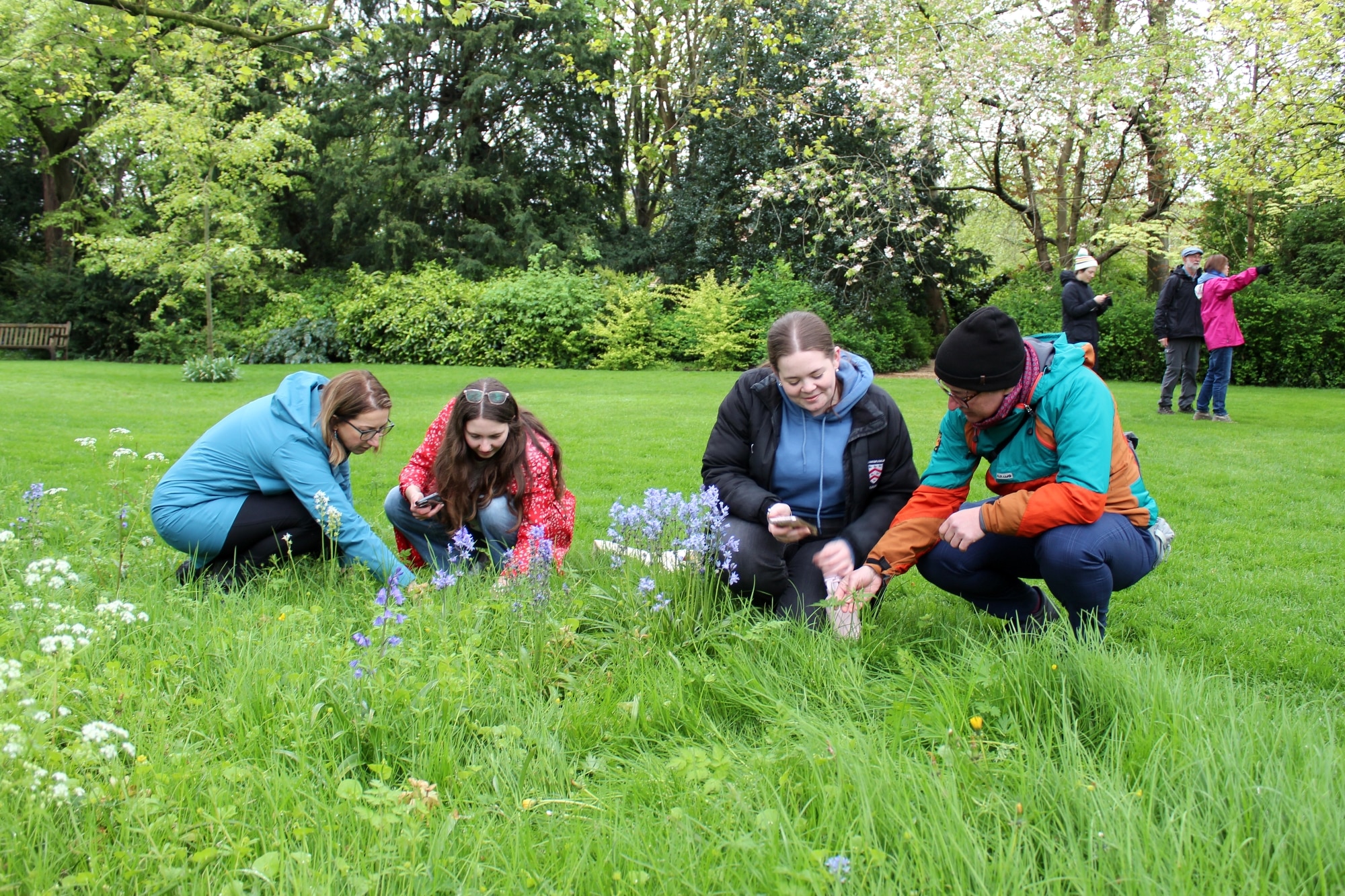
Biodiversity monitoring
It’s important for us to know what plants and animals call our grounds home. We’ve engaged citizen scientists in an ongoing biodiversity surveying project using the iNaturalist app to record their observations. We are also working to monitor and improve the water quality in our iconic lake. Read more about the surveying project a Worcester Magazine article by Joseph Boyle and see all the latest observations on iNaturalist by following the links below.
Read more in the Magazine View the Worcester project on iNaturalist
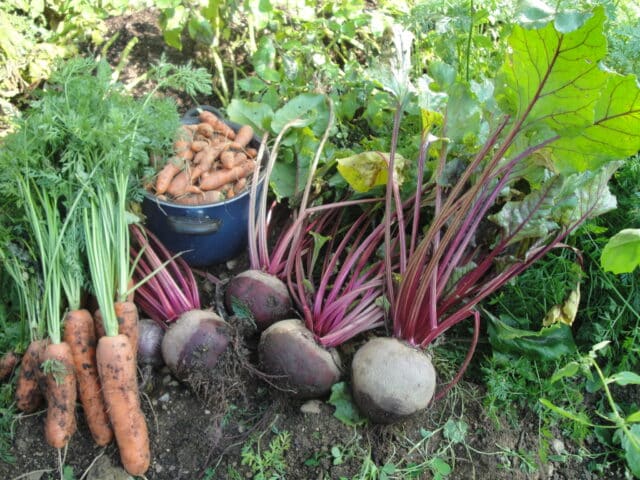
Edible Garden

Edible Garden
Worcester students have long been at the forefront of environmental research and innovative green thinking. The Edible Garden, founded by Elizabeth Sandis and Joe Hassell in 2010, is now the longest-running student vegetable garden at Oxford. It is situated in the walled garden of the Worcester Cottage on Walton Street and features raised beds with a range of edible crops and informal areas where students can unwind alongside flowers and wild strawberries.
2025 marks 15 years of the Edible Garden, during which hundreds of students have enjoyed growing their own fruit and vegetables, including salad crops, herbs and edible flowers. Undergraduates and graduates unite to form a joint team, looking after the garden together through the seasons.
- Students in the Edible Garden
- Co-Founder Elizabeth Sandis planting leeks
Co-Founder Elizabeth Sandis says: ‘Some years we are blessed with a bumper crop and organise a special “Harvest Hall” for Michaelmas Term. Though we couldn’t do this without the indomitable spirit of Head Chef Arnie Wallbridge, transforming our wonky veg into top grub! We are especially indebted to Simon Bagnall, Head of Gardens and Grounds, and all of his superb team, who have gone out of their way to support the Edible Garden over the years. We are currently developing the space to make it even better. We want it to be a highlight of College for everyone – staff, students, and old members alike.’
- ‘Harvest Hall’ with Edible Garden produce
- Co-Founder Joe Hassell with a ‘wonky’ potato
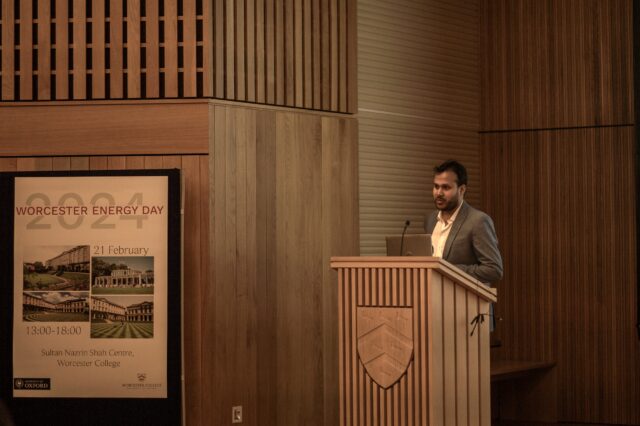
Worcester Energy Day
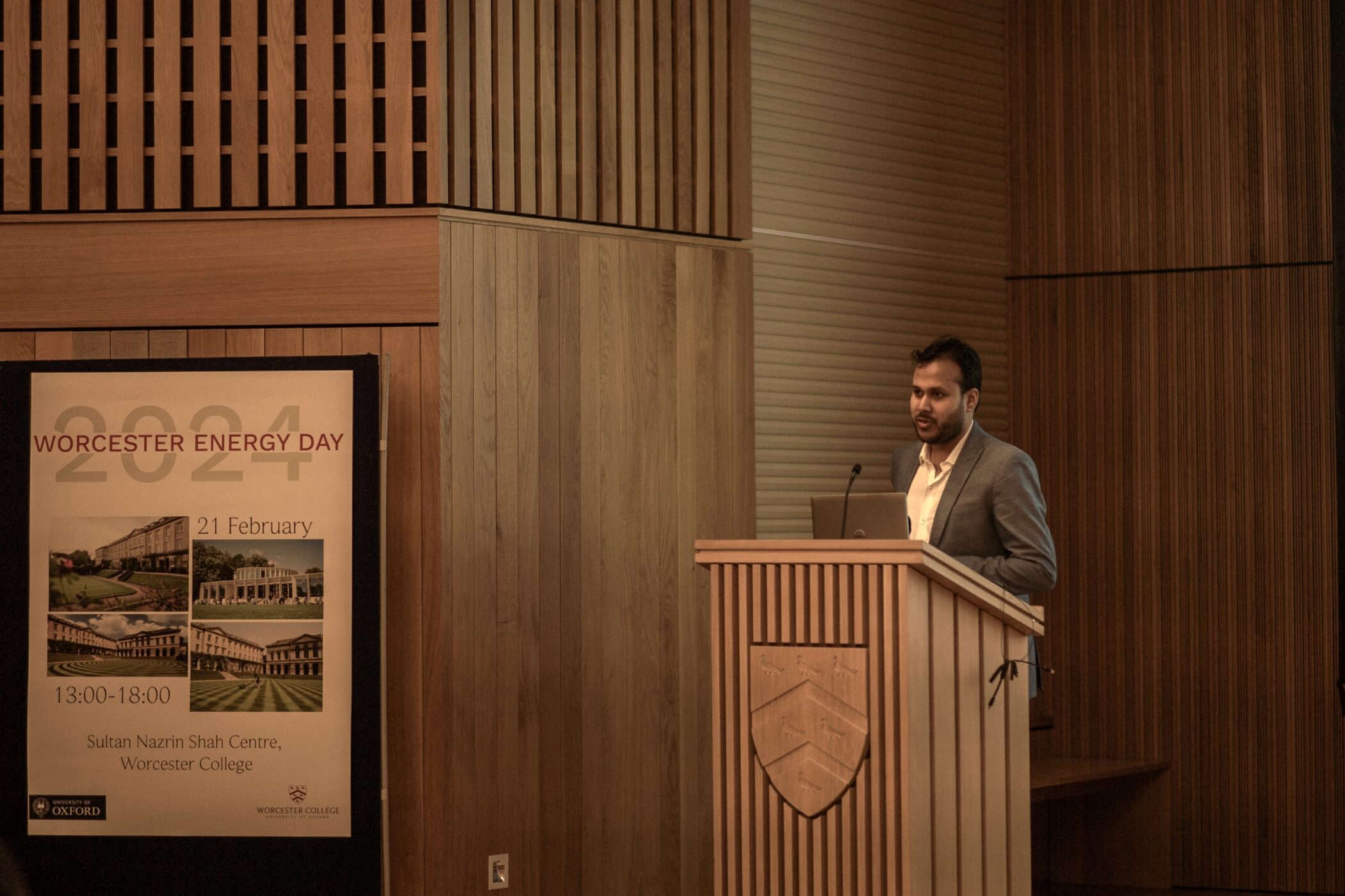
Worcester Energy Day
Worcester Energy Day brings together students and researchers from across the University to share ideas and experiences relating to clean energy generation and storage. For the inaugural event in February 2024, we invited three leading speakers from within the Oxford faculty who described their research on renewable energy generation, solar-to-fuel energy conversion and energy storage using batteries. In addition, there were 17 oral presentations delivered primarily by graduate students and postdoctoral researchers from different departments. Finally, a poster and networking session gave ample opportunities for making new connections and building collaborations.
Worcester Energy Day provided a unique platform for Oxford researchers to showcase their energy-related research to their peers. The first of its kind in any college or department, the overwhelming response was a desire to see this as an annual event – something we hope to be able to bring to fruition in years to come. Event convenor Dr Krishanu Dey (Junior Research Fellow) offers more information in the Worcester Magazine article linked below.

Sustainability on the shelves

Sustainability on the shelves
In Michaelmas Term 2021, in the national context of COP26, and the local one of a new University Sustainability Strategy, we asked students ‘what should we read in Worcester to learn more about sustainability?’
We considered ‘sustainability’ in the broadest possible terms – environmental sustainability, but also social and economic sustainability. As a result, we added the twelve books below to our collections, covering topics ranging from clean energy and technology, to the Planetary Health Diet and economic revolution, to more philosophical works that look at our cultural and personal relationships with the environment. All of these titles are now available in the Library and can be borrowed by College members.
gardens & Grounds
Our gardeners are working hard to embed sustainability in their stewardship of our historic gardens and grounds. Recent initiatives have included creating wildflower meadows in the Upper Orchard and Provost’s Garden – with over 1,200 wildflowers planted – as well as the introduction of the Provost’s bee hives, with three colonies of bees happily installed at the bottom of the Provost’s lawn.
What we’re focusing on:
- Increasing biodiversity: We’re growing and planting diverse species, from trees to sequester carbon to nectar-rich shrubs and fruiting plants which provide food for wildlife throughout the year.
- Habitats for wildlife: Our hedges, meadows, dead wood and log piles provide natural shelter and safe corridors for birds, mammals and insects.
- Sustainable choices: By composting our waste, reducing our use of pesticides and oil-powered machinery, and conserving water, we’re working hard to garden responsibility.
Read more about sustainability and biodiversity in the gardens
Environmental Sustainability Policy
Download our policy












